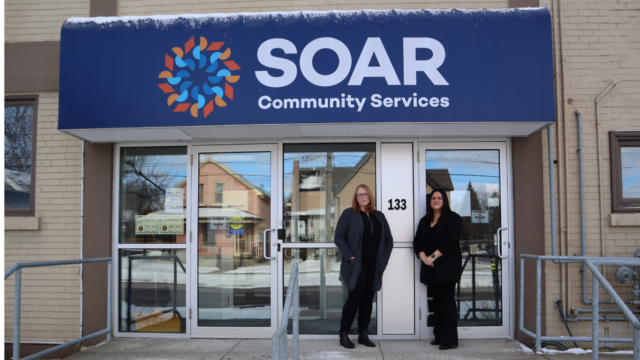Brantford-Brant is grappling with an escalating opioid crisis, as recent data reveals a sharp rise in emergency department (ED) visits for overdoses and persistent concerns about fatality rates. Between January and June 2024, there were 203 opioid-related ED visits in the region—a significant increase from 142 cases during the same period in 2023, according to the Brant County Health Unit.
While opioid-related deaths in Brantford-Brant decreased slightly—30 deaths in the first six months of 2024 compared to 38 deaths in 2023—the region’s fatality rate remains higher than the provincial average. Alarmingly, 77% of these deaths occurred in private residences, emphasizing the ongoing need for proactive intervention and harm-reduction measures.
The crisis was further underscored by the tragic discovery of two deceased individuals in an encampment in Brantford’s Eagle Place neighborhood on December 26, 2024. Brantford Police have stated that foul play is not suspected, and the investigation is ongoing in collaboration with the Office of the Chief Coroner.
In response to this tragedy, SOAR Community Services has ramped up efforts to address the urgent needs of Brantford’s vulnerable populations. SOAR Executive Director Kim Baker highlighted the organization’s 24/7 emergency shelter intake services and access to necessities, including food, shower, and naloxone kits.
“Our programs operate year-round to support those in crisis,” Baker said. “We provide connections to addiction and mental health resources, income support services, and housing stability funds.”
Despite these efforts, gaps remain. Baker acknowledged that the expiration of Health Canada grant funding and inability to obtain sustainable resources, led to the closure of the Brantford Downtown Outreach Team (BDOT) in March 2024, which had previously made over 2,000 referrals to community services in its first year alone. Baker described the loss of BDOT as a “major setback” and emphasized the need for sustainable funding to relaunch such initiatives.
SOAR also provides addictions programs, including harm-reduction outpatient counseling, withdrawal management services, and access to opioid agonist therapies like methadone and suboxone. Senior Director of Services Katie Curtis explained that the focus is on both immediate and long-term care.
“Emergency shelter intake links individuals to housing resources and case management services, ensuring they have the support needed to transition to stable, long-term housing,” Curtis said.
While Curtis reported no overall spike in access to services following the Eagle Place incident, 19% of those seeking emergency shelter services in the week after were first-time clients, reflecting the ongoing strain on local resources. In the month of December alone, this service supported 206 unique individuals.
SOAR works closely with the City of Brantford’s Encampment Response Team, the Brantford Police Service, and other agencies to coordinate outreach and housing support. Weekly meetings and collaborative initiatives, such as the Complex Case Table, aim to assist individuals with high-risk or complex needs.
However, Baker stressed that addressing homelessness and substance use requires long-term solutions, including increased investment in affordable and supportive housing as well as expanded addiction treatment programs.
A recent application led by SOAR for a Homeless and Addiction Recovery Treatment Hub (HART Hub) could be a game-changer if approved by the Ministry of Health. The hub would expand access to substance use and housing services, providing critical infrastructure for recovery programs in Brantford-Brant.
Both Baker and Curtis emphasized the importance of public advocacy to secure funding and resources. They called for evidence-based policies and programs that prioritize compassion and dignity.
“There’s no quick fix,” Baker said. “We need systemic changes to tackle poverty, affordable housing shortages, and gaps in social services. But change also starts with connection and compassion. These are things we can all offer.”
For people with urgent housing needs, SOAR Community Services offers immediate support through Emergency Shelter Intake Services open from 8 am to midnight at 73 Murray Street and available by phone 24/7 at (519) 759-1290 or 1 (888) 621-0034. Anyone needing immediate support for a mental health issue can call SOAR’s 24/7 crisis line at (519) 759-7188 or 1 (866) 811-7188.





































